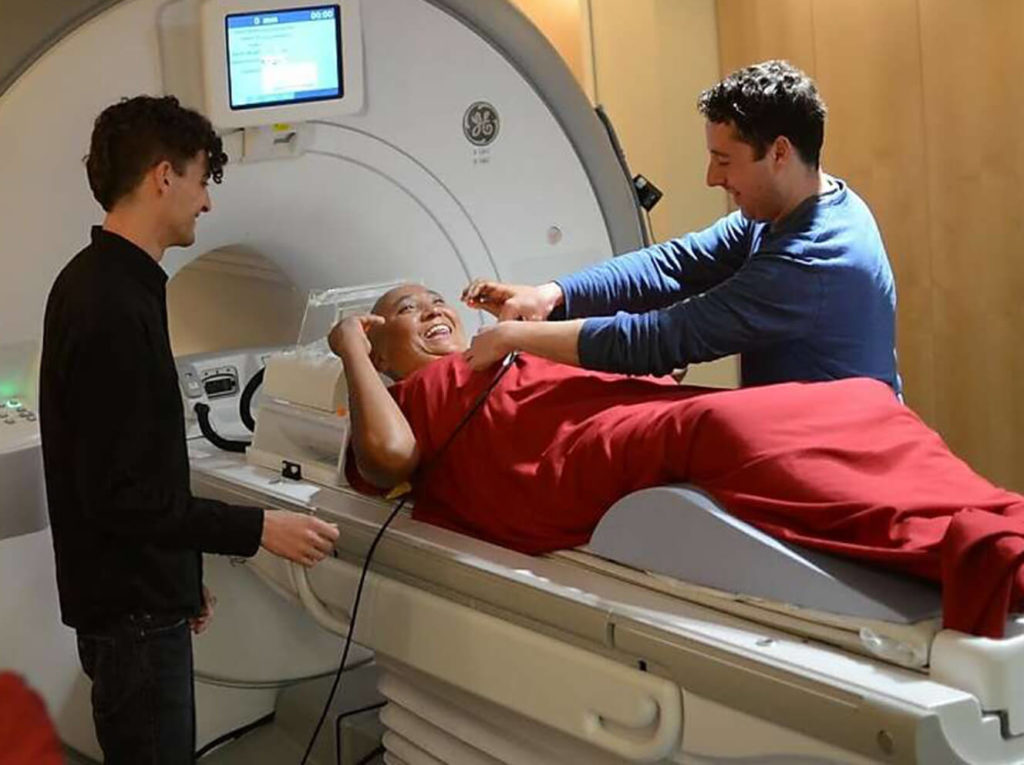Mind-body techniques can help chronic pain patients reduce pain and improve the quality of their lives, says Ellen Slawsby, PhD, director of Pain Services at the Benson-Henry Institute for Mind Body Medicine at Massachusetts General Hospital.
“Chronic pain affects every single aspect of life.”
“Chronic pain affects every single aspect of life — your relationships, your relationship with yourself, your spirit and belief system,” Dr. Slawsby explains.
More Americans have pain than diabetes, heart disease and cancer combined, Dr. Slawsby says. Conditions that can cause chronic pain include arthritis, fibromyalgia, headaches and backaches.
Dr. Slawsby’s hopeful message about pain relief is supported by research that shows behavioral medicine interventions reduced more expensive medical treatments for many ailments including doctor office visits for arthritis by 40 percent.
Learning to Relax the Body
Pain exacerbates the body’s natural stress response, the “fight or flight” that can make people feel overwhelmed, Dr. Slawsby explains. “There is a personal impact of pain resulting in depression, poor sleep, decreased enjoyment and a feeling of having less control over life,” she says.

Mind-body medicine aims to reduce stress, give patients back a sense of control and improve mood and quality of life. Many mind-body techniques are easy, cost-effective and can be employed on a patient’s own time.
The BHI uses the “relaxation response,” a technique described by its founder Herbert Benson, MD, director emeritus. It involves repeating a sound, word, phrase, prayer or movement and setting aside intruding thoughts and returning to the repetition.
Built upon the relaxation response, the BHI considers mind-body medicine to be part of a three-part approach to patient care, along with surgery and medication.
In recent years, more patients have turned to mind-body medicine, Dr. Slawsby says. One reason might be concern over the opioid crisis and a desire by healthcare providers and patients to find other ways to manage pain, she adds.
“By using mind-body skills, patients can regain control, find enjoyment and fulfillment and engage in positive activities, which, in turn, enhances their mood and decreases the sense of anxiety that often accompanies chronic pain,” Dr. Slawsby says.
To manage chronic pain, try these mind-body approaches:
- Mini relaxation techniques. Use these breaks to avoid knee jerk reactions to situations. Take one breath in and think the word “peace.” Then, take one breath out and think the word “tension.” Repeat for three to five breaths. Try this exercise six to 10 times per day.
- Relaxation response. Select an activity to do daily for 20 minutes. If you are new to meditation, attending a class, using a CD or online guided version will help to keep your mind from straying.
- Mindfulness. Pick an activity that you enjoy like reading poetry, gardening or cooking and become fully immersed in it. Notice every detail and consider your senses and emotions.
- Give yourself a pep talk. Focus on what you can do. Remind yourself of what you have accomplished despite your pain and view it as a challenge, not a threat. Avoid all-or-nothing thinking. Write down how you would advise a friend and follow your own wisdom.
- Pace yourself. If you want to take your daughter prom-dress shopping, but can’t walk for an hour without rest, consider pacing. Shop for a half-hour, then sit for 10 minutes before continuing. It might not be the way you envisioned the day, but you can make a nice memory and save yourself an evening of pain from overdoing it.
- Exercise in moderation. First, check with your doctor. While exercising, if your pain goes up two points, stop. Exercise does not have to be intense. Try short walks, split up by rest on a bench. Chair yoga and recumbent stationary bikes are also good options.
- Eat well. Balance meals with vegetables, fruits and protein. Try not to overindulge in carbohydrates, which may be comforting but will not lift your mood in the long-term.
- Listen to your body. Think about when your body needs more attention. A warm shower and yoga in the morning can get stiff joints going. While an afternoon meditation can prevent headaches.
To support the work of the Benson-Henry Institute for Mind Body Medicine, please contact us.




